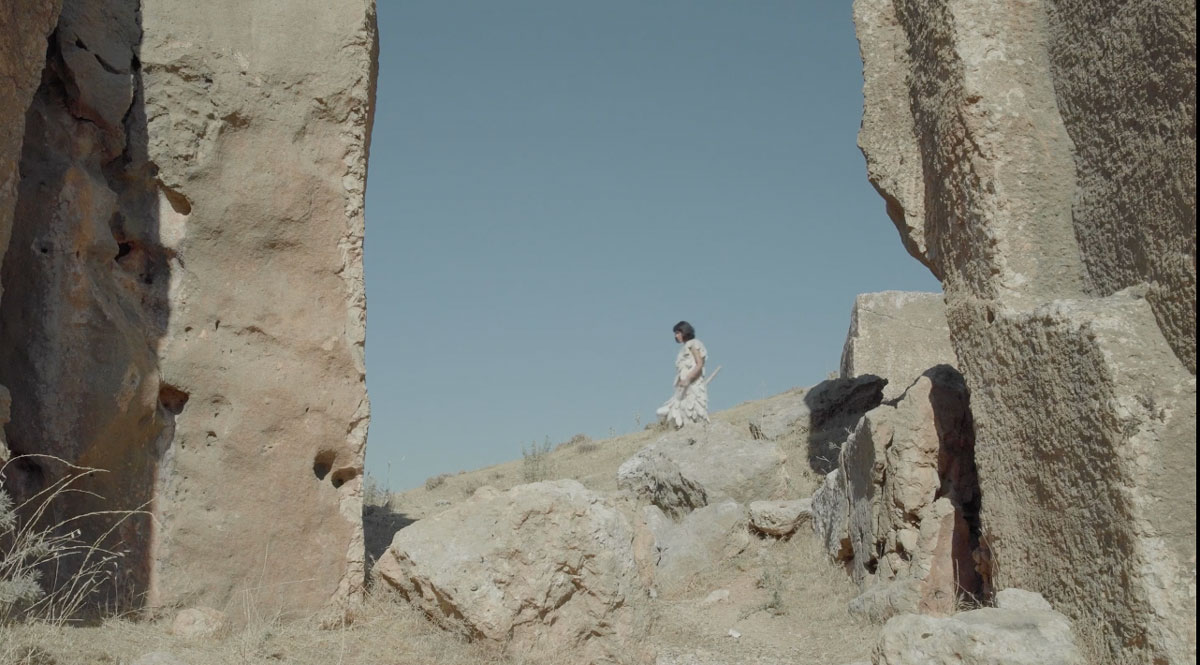Gilgamesh: She Who Saw the Deep
Thursday 11 July at 19:30

The Sursock Museum is pleased to invite you to the film screening of Gilgamesh: She Who Saw the Deep by Anton Vidokle and Pelin Tan, on Thursday 11 July at 19:30. The screening will be followed by a Q&A with Pelin Tan and cinematographer Ayman Nahle.
Gilgamesh: She Who Saw the Deep - Gilgamêş: Ewe ku kûrahî dît
Anton Vidokle and Pelin Tan, 2022
44’, Turkey and USA
In Kurdish and Turkish, with English subtitles
The Epic of Gilgamesh is the oldest known literary work in the world. Written in Mesopotamia more than five thousand years ago, it describes the journey of Gilgamesh, the ruler of one of the first historical metropolises, Uruk. Following the death of Gilgamesh’s best friend Enkidu, Gilgamesh embarks on a quest for immortality to avoid the same fate. Part god and part human, Gilgamesh encounters a varied cast of characters, from the Goddess Ishtar and the scorpion people, to Utnapishtim, who, like Noah, saved humanity from the Great Flood by building an arc. Filmed on the banks of the Tigris River near the ancient cities of Mardin, Hasankeyf, and Dara, Anton Vidokle and Pelin Tan’s Gilgamesh: She Who Saw the Deep (2022) retells the story of Gilgamesh as a journey through time and space inspired by Sumerian cosmology and the philosophy of Russian cosmism. Featuring an all-woman cast of actors from the Amed Theater in Diyarbakır and accompanied by an original score by Alva Noto, Gilgamesh is a meditation on questions of living, death, friendship, love, and immortality.
Anton Vidokle is an artist and an editor of e-flux Journal. In 2013 he co-directed the Home Works program at Ashkal Alwan, with Jalal Toufic.
Pelin Tan is a sociologist and art historian based in Mardin, Turkey. She is a Beirut Orient Institute Roemer Fellow and visiting researcher at the Department of Sociology, Anthropology, and Media Studies, at AUB. Tan is the 6th recipient of Keith Haring Art & Activism (2019).
